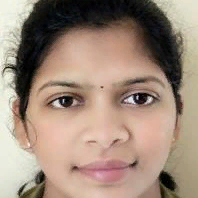International Journal of Image, Graphics and Signal Processing (IJIGSP)
IJIGSP Vol. 7, No. 5, 8 Apr. 2015
Cover page and Table of Contents: PDF (size: 893KB)
Generation of Undistorted Photomosaics of Cylindrical Vesicular Basalt Specimens
Full Text (PDF, 893KB), PP.13-19
Views: 0 Downloads: 0
Author(s)
Index Terms
Photomosaic, Image Stitching, Geotechnical Imaging, Vesicular Basalt
Abstract
Photographic documentation of prepared rock core specimens may be required for scientific studies. For specimens that have surface features which vary circumferentially, it is advantageous to have a single photomosaic of the specimen surface rather than a series of surface photographs. A technique to develop a photomosaic from a series of overlapping images of prepared vesicular basalt core specimens is presented. The overlapping images of the specimen surface are subjected to an initial cropping, a geometric transformation, an intensity interpolation, a final cropping, and an image stitching algorithm. The final result is an undistorted photomosaic of the entire specimen surface. All steps except the initial cropping are implemented within MATLAB®.
Cite This Paper
Alan Harris, Ratna S. Medapati, O. Patrick Kreidl, Nick Hudyma, Travis Waldorf,"Generation of Undistorted Photomosaics of Cylindrical Vesicular Basalt Specimens", IJIGSP, vol.7, no.5, pp.13-19, 2015. DOI: 10.5815/ijigsp.2015.05.02
Reference
[1]ASTM Standard D5709, 2008, "Standard Practices for Preserving and Transporting Rock Core Samples," ASTM International, West Conshohocken, PA, 2008.
[2]EM 1110-1804, 2001, "Geotechnical Investigations", US Army Corps of Engineers.
[3]Schepers, R., Rafat, G., Gelbke, C., and Lehmann, B., 2001. "Application of borehole logging, core imaging and tomography to geotechnical exploration" International Journal of Rock Mechanics & Mining Sciences 38 (2001) 867–876,http://dx.doi.org/10.1016/S1365-1609(01)00052-1.
[4]Trewin, B., Wiseman, M., and Oguz, E., 1996. "Digital core imaging – methodologies, benefits and applications" Extended abstracts book: 58th European Association of Geoscientists and Engineers, Amsterdam, The Netherlands, June 3-7, 1996
[5]Walls, J.D. and Sinclair, S.W. Eagle Ford Shale Reservoir Properties from Digital Rock Physics, First Break 29 (6): 97-100, 2011.
[6]Rassenfoss, S., 2011. "Digital rocks out to become a core technology", Journal of Petroleum Technology, pp. 36-41, May 2011.
[7]McMillan, K., 2008. "An inexpensive system for continuous lake core photography", Journal of Paleolimnology, Volume 40, pp. 1179-1184, http://dx.doi.org/10.1007/s10933-008-9223-5.
[8]Beggan, C. and Hamilton, C.W., 2010. "New image processing software for analyzing object size-frequency distributions, geometry, orientation, and spatial distributions", Computers & Geosciences, 36, 539-549, http://dx.doi.org/10.1016/j.cageo.2009.09.003.
[9]Brown, J.A., Ashlock, D. Orth, J. Houghten, S, "Autogeneration of fractal photographic mosaic images," IEEE Congress on Evolutionary Computation, 2011.
[10]Hudyma, N., Harris, A., Nguyen, K., and Edgar, J., 2011, "Development of an automated laboratory core specimen photography system", CD-ROM Proceedings of the 45th US Rock Mechanics/Geomechanics Symposium (G. Esterhuizen and A. Tutuncu, eds.), June 26-29, 2011, San Francisco, CA.
[11]Apostol, T.M. and Mnatsakanian, M.A., 2007. "Unwrapping curves from cylinders and cones", The Mathematical Association of America Monthly, 114, 388-416.
[12]Gonzalez, R.C. and Woods, R.E., 2008. Digital Image Processing, 3rd edn., Prentice Hall, New York, NY, 954 pp.



